
Angharad Hampshire
Research Associate, York St John University
I'm a Research Associate at York St John University working on an AHRC funded project called StoryArcs run by the University of Bath Spa, which is looking into the deep structures of Story. I'm attached to the writing development agency for the north of England, New Writing North's A Writing Chance project, which aims to open the writing industries to new and aspiring writers from working-class, lower-income and other underrepresented backgrounds.
Prior to this, I completed my PhD in Sydney in 2021, during which time I researched and wrote a novel as part of my doctoral thesis. Before that, I was an Honorary Lecturer in Journalism at the University of Hong Kong for seven years. And, before that, I worked as a radio producer for BBC Radio 4 and the BBC World Service in London for 12 years.
My undergraduate degree is an MA (Hons) French from the University of Edinburgh, gained in 1995.
Less ![]()

Angie Elwin
Angie is a wildlife research manager at World Animal Protection and visiting research fellow at the University of Reading. Her research investigates several global issues related to the commercial use of wild animals, including online trade for the pet market and trade in wildlife for use as traditional medicine.
Less ![]()

Angie Hilliker
Associate Professor of Biology, University of Richmond
A cell constantly alters the expression of its genes (and thus the proteins it makes) in order to respond to its environment or change its function. Gene expression can be modulated at many levels, from the birth of a messenger RNA (mRNA) to its destruction. Once it enters the cytoplasm, an mRNA can have various fates? it can be translated, translationally repressed, or degraded. The function of the mRNA is dictated by the proteins that associate with it to form an mRNP (mRNA-protein complex). For example, a translating mRNA associates with the ribosome, which will use the mRNA to make a protein. Alternatively, a non-translating mRNA associates with translational repressors or decay factors that sequester the mRNA from the ribosome or destroy the mRNA. The mRNP composition is dynamic, which allows the mRNA to move among translation, storage, or decay complexes. Dr. Hilliker's lab studies how mRNPs alter their composition to change the translatability of the mRNA. She uses budding yeast and a combination of genetics, cell biology, and biochemistry to understand how a cell determines the fate of an mRNA. This type of regulation of translation is important in all cells, but is especially important early in development, during stress, and in learning and memory.
Less ![]()

Angie Nga Le
Postdoctoral Associate in Public Policy and Public Finance, Rutgers University
Less ![]()
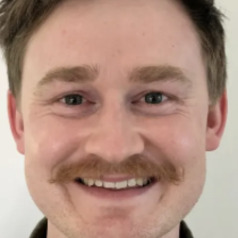
Angus Hughes
Epidemiologist, Epidemiological Modelling Unit, School of Public Health and Preventive Medicine, Monash University
Angus is an epidemiologist with a medical background. His interest is understanding and applying the epidemiology and public health aspects of infectious diseases to support the development of mathematical models of disease transmission, with a focus on assisting public health response and disease control.
Less ![]()
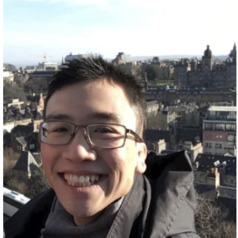
Anh Khoi Nguyen
Postdoctoral Research Associate in Linguistics, University of Manchester
Khoi Nguyen is a postdoctoral researcher at the University of Manchester researching the use of immigrant minority languages, or heritage languages. He is particularly interested in heritage langauge practices and policies in businesses, religious and cultural institutions, and the influence of space and context on linguistic behaviour.
Less ![]()

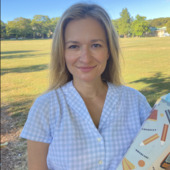

Aníbal M. Astobiza
Investigador Posdoctoral, especializado en ciencias cognitivas y éticas aplicadas, Universidad del País Vasco / Euskal Herriko Unibertsitatea
Less ![]()

Anika Cloutier
Assistant Professor, Faculty of Management, Dalhousie University
Professor Cloutier’s research centres on leadership. She considers antecedents to leadership emergence (who becomes a leader?), barriers to leader role occupancy (who does not become a leader?) and predictors of leadership behaviour (why do some leaders behave well, and others badly?). She examines how employees' home-life, mental health and gender affect these leadership outcomes.
Less ![]()

Anirban Mukhopadhyay
Lifestyle International Professor of Business and Chair Professor of Marketing, Hong Kong University of Science and Technology
Anirban Mukhopadhyay (PhD, Columbia) is the Lifestyle International Professor of Business and Chair Professor of Marketing at the Hong Kong University of Science and Technology. His research examines the interplay between lay people's beliefs, emotions, and self-regulatory decisions, with current substantive interests including food-related decision making, field experimentation with policy implications, and subjective wellbeing. Anirban is a former Associate Provost (Teaching and Learning) at HKUST, and Editor-in-Chief of the Journal of Consumer Psychology.
Less ![]()

Aniruddh Sarkar
Assistant Professor of Biomedical Engineering, Georgia Institute of Technology
Aniruddh Sarkar is an Assistant Professor in the Wallace H. Coulter Department of Biomedical Engineering at the Georgia Institute of Technology and Emory University where he leads the Micro/Nano Bioelectronics Lab. He was earlier a Research Fellow at the Ragon Institute of MGH, MIT and Harvard with research affiliations at Harvard Medical School and at MIT. His research has evolved around the theme of exploiting unique physical phenomena that occur at the micrometer to nanometer length scales to develop devices and systems for solving various technological problems with a special focus on applications in biology and medicine. His earlier work, with Prof. Galit Alter (MGH/HMS) and Prof. Jongyoon Han (MIT), involved the development and application of microfabricated and nanofabricated devices to further the prevention, diagnosis and therapy of infectious diseases such as Tuberculosis and HIV/AIDS. He received his Ph.D in Electrical Engineering and Computer Science with a minor in Biology at MIT, developing microfluidic tools for single-cell analysis. He received his bachelors and masters degrees, both in Electrical Engineering at IIT Bombay.
Less ![]()

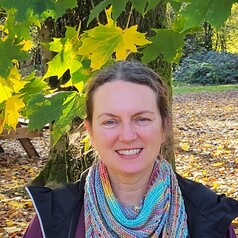
Anita Carey
PhD Candidate, School of Civil Engineering and Surveying, University of Portsmouth
After gaining a BSc(Hons) in Environmental Science I studied for a MRes investigating pore-water metals from a 19th century copper and arsenic mine. This was followed by a few years working in the wastewater industry, monitoring a range of innovative wastewater treatment projects. In 2022 I moved back to the University of Portsmouth analysing microplastics in seawater samples from Kenya, and around the United Kingdom. I am now in my second year of a PhD, investigating the fate of compostable packaging in home composting systems.
Less ![]()

Anita Lam
Associate Professor, York University, Canada
Anita Lam is an Associate Professor at York University, Canada. Her research is located at the intersection of crime, media and culture.
Less ![]()


Anita Minh
Post-doctoral Fellow, Sociology, University of British Columbia
Anita Minh is a social epidemiologist and a Canadian Institutes of Health Research Postdoctoral Fellow at the University of British Columbia. She conducts research on the social drivers of mental health disparities across the life course. Currently, her work focuses on issues of precarious employment, gender, and racialization.
Less ![]()
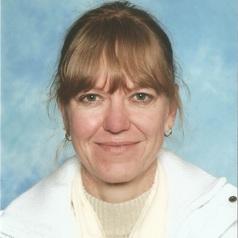
Anita Moyes
Lecturer in Nursing, Edith Cowan University
Anita's expertise is in community health, school nursing, child & adolescent health and mental health. A clinician and educator in young people’s health for more than 25 years, she completed her PhD at Curtin University Perth in 2019, by exploring the experiences of secondary school nurses who encounter young people with mental health problems.
Less ![]()

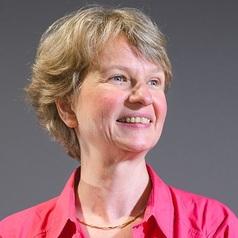
Anja Louis
Professor of Transnational Popular Culture, Sheffield Hallam University
I'm Professor of Transnational Popular Culture at Sheffield Hallam University.
My research is firmly grounded in Spanish Cultural Studies in its openness to interdisciplinarity and its celebration of popular culture. Previous projects have examined the representation of gender issues in popular culture through the prism of various law-and-culture debates.
Less ![]()
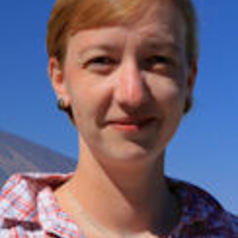
Anja Schmidt
Academic Research Fellow in Volcanic Impacts and Hazards, University of Leeds
I am an Academic Research Fellow in the Institute for Climate and Atmospheric Science since February 2013. I combine expertise in atmospheric science and volcanology to advance the current understanding of volcanic impacts and hazards. In particular, I investigate the impact of volcanism on atmospheric chemistry, climate, air quality, human health, ecosystems and aviation using a wide range of atmospheric models and volcanological datasets. I also apply my atmospheric chemistry and aerosol modelling skills to non-volcanic topics in atmospheric and climate sciences.
You can learn more about my research here: http://homepages.see.leeds.ac.uk/~earasc/research.html
Less ![]()

Anjali Gupta
Lecturer, School of Mathematical and Physical Sciences, and Researcher, Centre for Forensic Science, University of Technology Sydney
Dr Anjali Gupta is a Lecturer in the School of Mathematical and Physical Sciences and a researcher in the UTS Centre for Forensic Science.
Dr Gupta received her PhD from the University of Auckland in 2019 where she worked on Interpreting Forensic Trace Evidence using Multi-Elemental and Spectroscopic Data. She was awarded her MSc from the University of Oxford in 2011. She worked in the industry as Data Scientist, Statistician and Consultant in various domains - energy sector, financial markets, marketing during 2012 until 2020. She also worked as a co-organiser for R Ladies Auckland group from 2017 until 2020.
Less ![]()
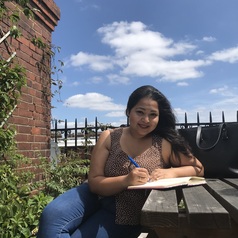
Anjali Raj Westwood
Lecturer, Graduate School of Healthcare Management, RCSI University of Medicine and Health Sciences
As an academic, birth worker and entrepreneur, my areas of interest span healthcare and business.
Healthcare: Yoga, pregnancy, breastfeeding, infertility
Business: leadership, strategy, digital health, innovation, organisation culture
In a range of capacities, my higher education work experience spans:
-Royal College of Surgeons, Ireland
-UBI Business School, Brussels
-University of Hull
-Coventry University
-University of Leicester
-University of Warwick
-York St John University
Less ![]()
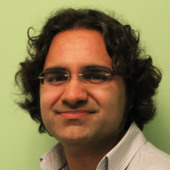

Ankhi Mukherjee
Professor of English and World Literatures, University of Oxford
I am the author of two books: Aesthetic Hysteria: The Great Neurosis in Victorian Melodrama and Contemporary Fiction (2007) and What Is a Classic: Postcolonial Rewriting and Invention of the Canon (2014), which won the British Academy Prize in English Literature in 2015. I have a third book, Unseen City: The Psychic Life of Poverty in Mumbai, London, and New York, in press (Cambridge University Press). I have edited two collaborative volumes on literature and psychoanalysis (including After Lacan, published by CUP) and published in top peer-reviewed journals such as PMLA, MLQ, Contemporary Literature, Paragraph, and others. My research and teach specialisms are Victorian literature and culture; postcolonial studies; intellectual history, in particular the history and theory of psychoanalysis.
Less ![]()

Ann Bajo
University of Portsmouth
Ann Bajo is a PhD Candidate at University of Portsmouth. Her research interest is defense and security in Southeast Asia. Currently, she is examining the role of Malaysia in the insurgent conflicts in the Philippines (Mindanao) and Thailand (Pattani). In the Philippines, she was a former Division Chief at the Office of the Presidential Adviser on Peace, Reconciliation and Unity. Prior to that, she worked in the Armed Forces of the Philippines (AFP) as a Defense Analyst for eight years. She has written several internally published works including, Challenges to Military Operations in Urban Terrain in the Philippines, China’s Military Militia and the Philippine’s Counterstrategy, and the AFP Joint Special Operations Doctrine.
Less ![]()
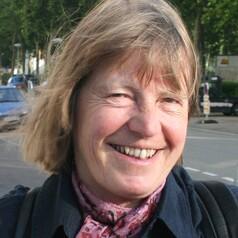
Ann Coats
Associate Professor in Maritime History, University of Portsmouth
Dr Ann Coats FRHistS, FSNR, FHEA
Ann is Associate Professor in Maritime Heritage at the University of Portsmouth [email protected].
A British maritime historian exploring social, cultural and global connections from the 17th–20th centuries, Ann’s focus on naval administration and dockyards incorporates personal, professional, local and international social networks.
Since November 2021, Ann has been the project lead for the 3-year University of Portsmouth workpackage 3.1 People and the Sea, within Unpath’d Waters Arts and Humanities Research Council Project (https://historicengland.org.uk/research/current/discover-and-understand/coastal-and-marine/unpathd-waters/).
Shipwrecks provide exciting and unique evidence of societies which built, supplied and crewed the vessels. Unlike sites on land, shipwrecks are unaffected by people (although not by the undersea environment) until discovered, so they preserve a single moment in time. Mary Rose is a celebrated example, but some wrecks at the Needles are not yet identified. There is a myriad of new stories to tell. The Analogue-Digital Connector illustrates insights gained from connecting digital and archival sources. Seven Needles wrecks were selected in discussion with the Maritime Archaeology Trust from its database. Proceeding from their data to archival catalogues, archives were searched to reveal new authentic data and make them publicly available to new audiences.
ORCID http://orcid.org/0000-0002-5793-6809
Ann's 2000 University of Sussex DPhil thesis is ‘The economy of the navy and Portsmouth: a discourse between the civilian naval administration of Portsmouth dockyard and the surrounding communities, 1650 to 1800’.
One 1996 research outcome was to co-found the Naval Dockyards Society which explores the civil branches of navies and their material culture and publishes dockyard-related research (https://navaldockyards.org/).
Publications include
- Sea routes and anchorages II: ‘Portsmouth, Spithead and St Helen's: “his Ma.ts Shipps returning out of the Sea in any distresse, with thelosse of cables or Anchors or with her masts borne over:board, Portsmouth is a safe place to save men ships & goods, whereas comeing any further a Southerly storme may bee the destruction of all”, Britain from the Sea in the Age of Sail, Chaline, O., Kowalski, J-M. & Harding, R. (eds.). Paris: Sorbonne Université Presses (2019)
- ‘Portsmouth Dockyard: contested buttress of state, royal and religious power in the 17th century’, Les arsenaux de Marine, du XVIe siècle à nos jours. Le Mao, C. (ed.). Paris: Sorbonne Université Presses (2019)
- Twentieth Century Naval Dockyards: Devonport and Portsmouth Characterisation Report (Historic England, 2015, co-authored) http://historicengland.org.uk/images-books/publications/twentieth-century-naval-dockyards-devonport-portsmouth-characterisation-report/
- The Naval Mutinies of 1797: Unity and Perseverance (Woodbridge, 2011, co-authored)
- ‘English naval administration under Charles I - top-down and bottom-up - tracing continuities’, in Transactions of the Naval Dockyards Society, Pepys and Chips (2012), 9-30
- ‘Bermuda Naval Base: Management, Artisans and their Enslaved Workers, 1795–1797’, Mariner’s Mirror, 95(2) (2009), 149-178
‘From “Floating tombs” to foundations. The contribution of convicts to naval dockyards and ordnance sites’, Age of Sail, 2 (London, 2003), 28-42
Less ![]()
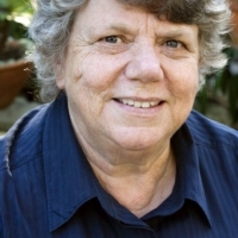
Ann Curthoys
Honorary Professor in History, University of Sydney
Ann Curthoys researches in Australian history, set in a broad transnational and imperial history frame. She also writes about history and theory, and historical writing. She is the author, with John Docker, of Is History Fiction? (UNSW Press, 2005, revised edition 2010)
She was formerly Manning Clark Professor of History at the Australian National University and ARC Professorial Fellow at the Australian National University and the University of Sydney.
Less ![]()
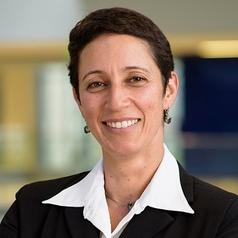
Ann Kronrod
Associate Professor of Marketing, Entrepreneurship and Innovation, UMass Lowell
Ann Kronrod is an Associate Professor in the Department of Marketing, Entrepreneurship and Innovation. She earned her Ph.D. in Marketing and Cognitive Science of Language from Tel Aviv University, and later completed her education as a Postdoctoral Researcher at MIT, Sloan School of Management. Prior to joining UMass Lowell, Ann Kronrod was an Assistant Professor at Michigan State University, and then Visiting Assistant Professor at Northeastern University and at Boston University. Ann Kronrod is a marketing researcher with extensive background in linguistics. Her research interests span a wide variety of subjects that can be categorized as marketing communication, consumer behavior, word-of-mouth and pro-social marketing. She often integrates her knowledge of linguistics in her research.
Less ![]()

Ann Light
I am a qualitative researcher, interested in how people relate to each other in contemporary society and the impact of present/future design choices. A fascination with digital mediation led me to make studies of websites and online discussion as early as 1995, and I now focus on mobile and ubiquitous contexts of use. An important element of my work has been looking at design globally - with projects in Ghana, India, Chile and Uganda, workshops on six continents, and a role advising the European Union on the future of the Internet.
I was a member of the Culture, Communication and Computing Research Institute at Sheffield Hallam University for several years, working closely with the four councils of South Yorkshire to research digital engagement strategies, and also holding an appointment in Drama at Queen Mary, University of London, where I devised methodology for communities to participate in designing future digital tools. More recently I held a post at Northumbria's Design School. I have been multiply funded under the interdisciplinary RCUK calls of Designing for the 21st Century and Connected Communities. In my research, I work extensively with arts organisations, grass-roots community groups, older people and marginalised communities, focusing on meaning-making, identity, inclusion and experience of technology.
I bring broad experience of interaction design practices including long-term consultancy in design companies (Flow Interactive http://www.flow-interactive.com, Fjord www.fjordnet.com), as well as projects with the likes of The Guardian, the BBC and the transport arm of Amey Technology.
I publish on social innovation, human-computer interaction and cross-cultural methodology, having helped design and evaluate websites, mobile phones, social networks and technologies of augmented reality, automatic identity capture (AIDC), ubiquitous computing and the Internet of Things.
Less ![]()
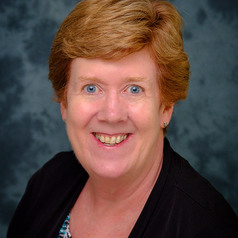
Ann Marie Ryan
Associate Chair and Director of Graduate Education, Organizational Psychology, Michigan State University
Ann Marie Ryan is a professor of organizational psychology. Her major research interests involve improving the quality and fairness of employee selection methods, and topics related to diversity and justice in the workplace. In addition to publishing extensively in these areas (she has published over 200 peer reviewed articles and book chapters), she regularly consults with organizations on improving assessment processes. Her most recent research is focusing on biases related to newer uses of technology in hiring contexts, designing recruitment processes to more effectively signal identity safety for those underrepresented in a particular work context, addressing ways to mitigate potential discrimination in hiring contexts, and understanding effective versus ineffective and performative actions by allies and organizations in addressing equity, inclusion and diversity in organizational contexts.
Less ![]()

Ann Searight Christiano
Director, Center for Public Interest Communications, University of Florida
Ann Searight Christiano is the director of the Center for Public Interest Communications at the University of Florida, a newly established center that works with organizations around the world to apply social, behavioral and cognitive science to driving lasting social change. She is a clinical professor in the department of public relations.
As the inaugural Frank Karel Chair in Public Interest Communications, she developed a curriculum in the newly-emerging discipline of public interest communications, which uses the tools of public relations and journalism to create positive social change.
Before joining the University of Florida, she directed communications for a portfolio of programs at the Robert Wood Johnson Foundation that create new opportunities for better health by investing in health where it starts and grows--in our homes, schools and jobs. She also developed a robust government relations program that helped Foundation grantees build productive relationships with their elected officials.
Searight Christiano's writing has appeared in the Stanford Social Innovation Review, Quartz and the Journal of Public Interest Communications.
Less ![]()

Ann-Christin Kreyer
Ph.D. Candidate in Innovation and Entrepreneurship, Max Planck Institute for Innovation and Competition
My areas of interest include Economics of Innovation, Industrial Organization, Competition Economics, Applied Econometrics, Digitalization, Artificial Intelligence and Data Science.
Less ![]()

Ann-Christine Simke
Lecturer in Performance, University of the West of Scotland
I joined the University of the West of Scotland’s Performance team in December 2022. Prior to my appointment at UWS, I worked as Postdoctoral Researcher in Theatre Studies at University of Bern in Switzerland (2021-22), as Assistant Lecturer in Drama and Performance at Queen Margaret University in Musselburgh (2020-21) and as Teaching Assistant in Theatre Studies at Glasgow University (2017-20) where I completed my PhD in 2016.
My academic expertise encompasses contemporary performance analysis, the history and contemporary practice of dramaturgy, institutional aesthetics and change, decolonial and postcolonial critique and intersectional analyses as well as a specific focus on German-speaking theatre. In addition to my academic work, I specialise in dramaturgy practice and cultural curating. From 2015-19, I worked as cultural programmer for the German cultural institute Goethe-Institut in Glasgow. Since January 2021, I have been a board member for the intersectional feminist theatre company Stellar Quines.
Less ![]()
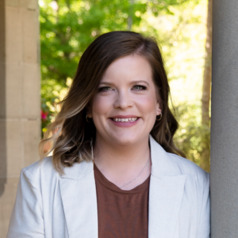
Ann-Kathrin McLean
Assistant Professor, School of Tourism and Hospitality Management, Royal Roads University
Dr. Ann-Kathrin McLean’s research evaluates the relationship between collective memory, Holocaust remembrance and a site of trauma. Understanding this relationship is important as we see a revival in fascist populism worldwide. Of specific focus is how Millennials interpret sites of Nazi war heritage and construct individual meaning. In order to help mitigate the memory loss across generations, McLean investigates how visiting a site of memory impacts a more embodied form of remembrance and influences a reflexive self.
McLean has more than 15 years of experience in a number of tourism sectors that include accommodation, food and beverage, events, festivals and live theatre.
She has been the production manager for international performing arts productions at the largest theatre festival in Europe and obtained hotel industry experience in the Middle East. She taught at Capilano University, Camosun College and College of the Rockies.
At Royal Roads she is an assistant professor in the School of Tourism and Hospitality Management and has teaching experience at both the undergraduate and graduate level. She is also a grateful recipient of the Kelly Outstanding Teaching Award - category new teacher.
Less ![]()
- Market Data























